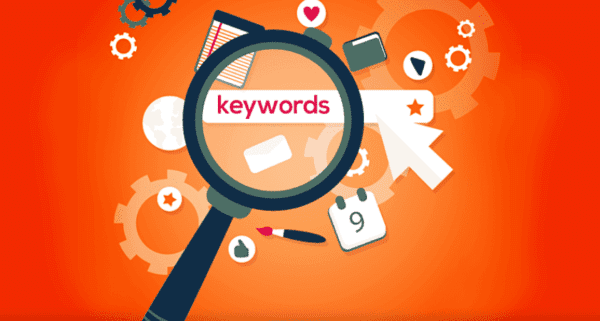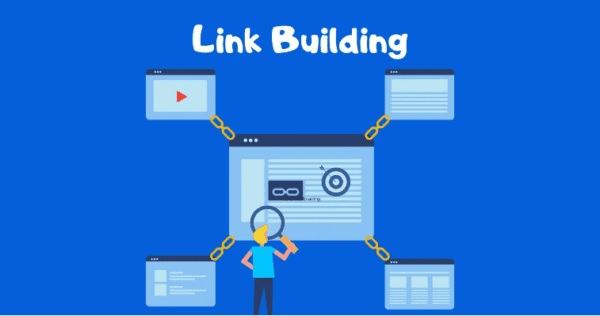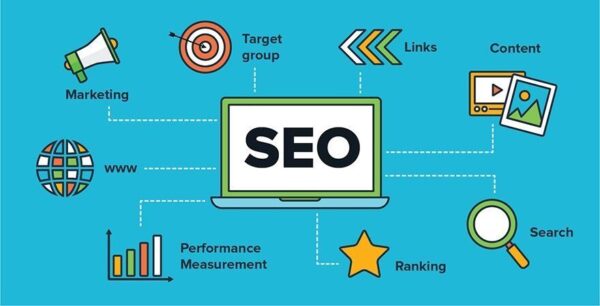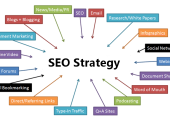In today’s digital world, search engine optimization (SEO) and analytics play a vital role in the success of your online presence hence the phrase SEO analytics. SEO analytics help you measure, analyze, report, and act on insights obtained from data that are overwhelmingly available today. As a business owner or website administrator, you need to understand the importance of these two elements and how they can help improve your website’s visibility, attract targeted traffic, and, ultimately, convert visitors into customers.
SEO is a set of strategies aimed at improving the search engine ranking of your website, making it more accessible and visible to users searching for relevant queries. By optimizing your website’s content and structure, you can enhance its relevance to specific keywords or search phrases. This is essential because higher search engine rankings translate into better visibility and more organic traffic.

On the other hand, analytics refers to the collection, analysis, and interpretation of data about your website and its users. By leveraging analytics tools, you can gain valuable insights into user behaviour, preferences, and demographics, fine-tuning your marketing strategy and providing a more personalized experience for your audience. With effective SEO practices, analytics data can help you make informed decisions and drive your website’s success.
Fundamentals of SEO Analytics
Search Engines and Their Algorithms
Understanding search engines and their algorithms is essential for improving your SEO efforts. These algorithms determine how websites are ranked in search results for specific keywords. Major search engines like Google, Bing, and Yahoo constantly update their algorithms to provide users with the most relevant and up-to-date content. As a result, it’s critical to stay informed about algorithm updates as part of your SEO analytics processes to ensure your website remains visible in search results.

Importance of Keywords in SEO analytics
The foundation for a successful SEO analytics report is selecting the right keywords. Keywords are the terms that users enter into search engines when looking for information or products. To effectively target your audience, you must research the specific keywords related to your niche. Several tools, such as Google Keyword Planner, can help you identify your website’s most relevant and high-traffic keywords.
An effective keyword strategy for SEO analytics includes:
- Primary keywords – are the main keywords directly related to your niche and offerings. Ensure these are included in your website’s title tags, meta descriptions, and headers.
- Secondary keywords – are related to your primary keywords but may not be as directly tied to your offerings. Use these in your content to enhance text relevance and improve ranking.
- Long-tail keywords – are longer, more specific phrases that users may search for. Incorporate these into your content strategy to capture a broader range of search queries.

Link Building Processes
Increasing backlinks is one of the key goals of SEO efforts. Link building is another crucial aspect of SEO analytics. High-quality external links to your website signal to search engines that your content is valuable and trustworthy. There are several link-building methods and insights you can use to improve your website’s visibility:
- Guest posting: Write high-quality articles for relevant websites in your niche, and include a link back to your site within the content or author bio.
- High-quality content creation: Create informative and engaging content for your audience that is more likely to be shared and linked to by others.
- Natural link building: Encourage organic link creation by promoting your content on social media and engaging with influencers in your industry.

Remember to focus on quality over quantity when it comes to link building, as poor-quality links can negatively impact your website’s reputation and rankings. SEO analytics comes in handy in determining the quality of backlinks.
Understanding SEO Analytics
Role of Data in SEO
Data plays a crucial role in Search Engine Optimization (SEO), allowing you to recognize patterns, find opportunities, and improve your website’s overall performance. By analyzing the data available, you can make informed decisions that drive traffic and enhance your site’s visibility in search engine results.
For successful SEO, you must focus on these key indicators:
- Organic Traffic: Measure the number of visitors who find your site through search engines rather than paid advertising or social media.
- Keyword Rankings: Track your site’s performance for relevant target keywords.
- Bounce Rate: Evaluate the percentage of users who quickly leave your site without navigating further.
These are just a few essential metrics to monitor in your SEO analytics process.
Monitoring and Interpreting SEO Metrics
You must regularly monitor and interpret specific metrics to maximise your SEO efforts. Here are some practical guidelines to follow:
- Use Analytics Tools: Utilize tools like Google Analytics or SEMrush to gather data and monitor your site’s performance.
- Track and Compare: Continuously compare your metrics to previous results to identify improvements or potential issues.
- Benchmark Against Competitors: Keep up with your competitors’ performance and find new strategies to propel your site’s ranking.

A vital part of SEO analytics is understanding on-site and off-site factors. On-site factors include meta tags, keyword density, URL structure, and other aspects controlled through your site’s content. Off-site factors involve external elements, such as backlinks, authority, and social signals.
| On-Site Factors | Off-Site Factors |
|---|---|
| Meta Tags | Backlinks |
| Keyword Density | Authority |
| URL Structure | Social Signals |
By mastering your understanding of SEO analytics, you can adopt better strategies, monitor progress, and drive your site towards success in search engine rankings. Remember, staying consistent and proactive with your SEO efforts is essential for long-term results.
SEO Analytics and Website Optimization
On-Page SEO Techniques
To optimize your website, on-page SEO techniques play a vital role. The following are some key aspects of SEO analytics to focus on:
- Title tags: Make your title tags descriptive yet concise, ideally under 60 characters.
- Meta descriptions: Craft captivating meta descriptions (under 160 characters) to entice users to click through from search results.
- Header tags: Properly structure your content with H1, H2, and H3 header tags for readability and SEO purposes.
- Keyword usage: Use target keywords naturally throughout the content. Avoid keyword stuffing and aim for a balanced keyword density.
- Image optimization: Compress and resize images, include descriptive alt tags and use appropriate file names.

Internal and external links also contribute to on-page SEO. When linking internally, use anchor text that supports the topic you are connecting to, and when adding external links, opt for reputable sources that offer valuable information to readers.
Site Architecture Optimization
A well-designed site architecture improves user experience and visibility to search engine crawlers. To optimize your site architecture, consider the following SEO analytics best practices:
- URL structure: Keep your URLs clean, descriptive, and keyword-rich—separate words with hyphens instead of underscores.
- Breadcrumbs: Implement breadcrumbs to help users and search engines navigate your website smoothly.
- Mobile-friendly design: Adopt responsive design to ensure your website looks and functions well on various devices.
- Site speed: Optimize site speed by compressing images, minifying CSS and JavaScript files, and leveraging browser caching.
One effective technique for optimizing site architecture is siloing. It refers to grouping related content together in distinct sections or categories, as shown in the example below:
| Parent Category | Sub-Category | Individual Page |
|---|---|---|
| Sports | Basketball | Types of Dunks |
| Sports | Soccer | Offside Rule |
Applying these website optimization tips will enhance your site’s search engine performance, user experience, and overall effectiveness in reaching your target audience.
Best SEO Analytics Practices

Content Marketing SEO Analytics Strategies
To improve your SEO, you should create high-quality content that engages your audience and contains relevant keywords. This involves:
- Keyword research: Use tools like Google Keyword Planner or Ubersuggest to find the most relevant keywords for your niche and include them in your content.
- Readability: Break up your paragraphs with bullet points, numbered lists, and subheadings to make the content easy to read.
- Long-form content: Aim to create articles around 1,000 words or more, as they tend to rank higher on search engines.
- Link building: Reach out to other websites and collaborate on content, boosting your site’s credibility through high-quality inbound links (backlinks).
Mobile SEO Analytics Strategies
With more smartphone users accessing websites, optimizing your site for mobile search is crucial. These mobile SEO analytics strategies will help improve your rankings:
- Responsive design: A mobile-responsive website will automatically adjust its layout based on the device’s screen size and resolution. This ensures a seamless browsing experience, reducing the bounce rate.
- Mobile site speed: Optimize your site’s loading speed by compressing large images, minifying CSS/JavaScript files, and leveraging browser caching.
- Mobile-friendly content: Keep content short, with clear calls to action, to make it more appealing to mobile users.
Local SEO Analytics Tactics
Local SEO is essential for businesses targeting a specific geographic area. Here are some effective local SEO tactics:
- Google My Business: Claim and optimize your Google My Business listing to improve your search visibility.
- Local keywords: Incorporate local keywords (such as city or neighbourhood names) into your content.
- NAP Consistency: Keep your business name, address, and phone number (NAP) consistent across all online listings, including social media and business directories.
Remember, consistently applying these practices to improve SEO, based on insights obtained from analytics, will ensure your website remains competitive and visible in the ever-changing world of Internet marketing.
Latest Trends Based on SEO Analytics
Voice Search SEO
With the rising popularity of voice assistants like Alexa, Siri, and Google Assistant, voice search has become a significant trend in the SEO landscape. To optimize your content for voice search, you should:
- Target long-tail keywords to capture conversational queries.
- Use a natural tone and informal language when writing your content.
- Include FAQ sections and questions in your content to provide more accurate, instant answers.
Understanding that users interact with voice search differently than text-based queries is crucial, so adjust your content accordingly.
AI in SEO
Artificial intelligence (AI) rapidly and automatically changes various industries, and SEO is no exception. Here are some ways AI is impacting SEO:
- Algorithm Updates: AI allows search engines to constantly refine and improve their algorithms to deliver better, more relevant results. Stay up-to-date with the latest information on algorithm changes.
- Content Optimization: AI-powered tools can analyze user intent and help you optimize your content to match search intent. Examples of these tools are Clearscope, MarketMuse, and Frase.
- Personalization: As search engines better understand user preferences, they can deliver personalized content. Cater your content to different segments of your target audience.
| AI tool | Use-case |
|---|---|
| Clear scope | Analyze top-performing content, provide keyword optimization |
| MarketMuse | Content analysis suggests improvements based on top contenders |
| Frase | Summarize existing content, create new content briefs |
By embracing these latest SEO trends, you’re giving yourself the essential tools to keep your website competitive and provide a better experience for your target audience.

Frequently Asked Questions
How do SEO and analytics work together?
SEO and analytics go hand in hand, as analyzing data helps you optimize your website for search engines. By using analytics tools, you gain insights into your site’s user behaviour and evaluate the effectiveness of your SEO strategies. These insights guide you in making data-driven decisions to improve your website’s visibility in search engine results pages (SERPs).
What are the essential SEO analytics tools?
Various analytics tools can enhance your SEO efforts, including:
- Google Analytics: Provides insights into your website traffic, user behaviour, and goal conversions.
- Google Search Console: Helps you monitor site performance, backlinks, and keyword rankings.
- Moz: Offers a suite of tools for keyword research, backlink analysis, and site audits.
- SEMrush: Provides comprehensive insights into keyword analytics, competitor analysis, and content optimization.
- Ahrefs: Offers tools for backlink analysis, keyword research, and technical site audits.
Choose the tools that best fit your needs and budget.

What is the role of an SEO data analyst?
An SEO data analyst plays a crucial role in evaluating your website’s performance and identifying areas for improvement. Their responsibilities include:
- Monitoring and analyzing organic search traffic and user behaviour.
- Evaluating website content, backlinks, site structure, and user experience (UX) to make optimization recommendations.
- Analyzing the performance of keyword ranking, social media presence, and competitor analysis.
- Working closely with content creators, web developers, and marketing teams to ensure SEO best practices are integrated throughout the website.
How does Google Analytics help in SEO?
Google Analytics assists you in understanding user behaviour on your website and evaluating the effectiveness of your SEO strategies. Some benefits include:
- Analyzing website traffic, including referral sources, top-performing pages, and bounce rates.
- You track and compare conversion goals to assess content and user engagement success.
- I am evaluating organic search traffic to identify opportunities for keyword optimization.
- Analyzing user behaviour, such as click-through rates and time on site, to inform UX improvements.
What is the process of conducting an SEO analysis?
SEO analytics involves assessing your website’s various elements to uncover improvement areas. The process includes:
- Technical Audit: Evaluating site speed, mobile-friendliness, indexing issues, broken links, and duplicate content.
- On-Page Analysis: Analyzing webpage content, keyword usage, metadata, headers, and internal linking structures.
- Off-Page Analysis: Examining backlinks, social media presence, and competitor performance to identify gaps and opportunities.
- User Experience: Evaluating page layouts, navigation, and overall usability to create a better user experience.
Develop and implement strategies to enhance your website’s SEO using these findings.
Do search engine analytics impact SEO rankings?
Search engine analytics don’t directly impact your SEO rankings. However, the insights gained through analytics tools help you identify areas for optimization and track the progress of your SEO efforts. By making data-driven decisions, you can optimize your site to rank higher in SERPs, increase organic traffic, and improve online visibility.







